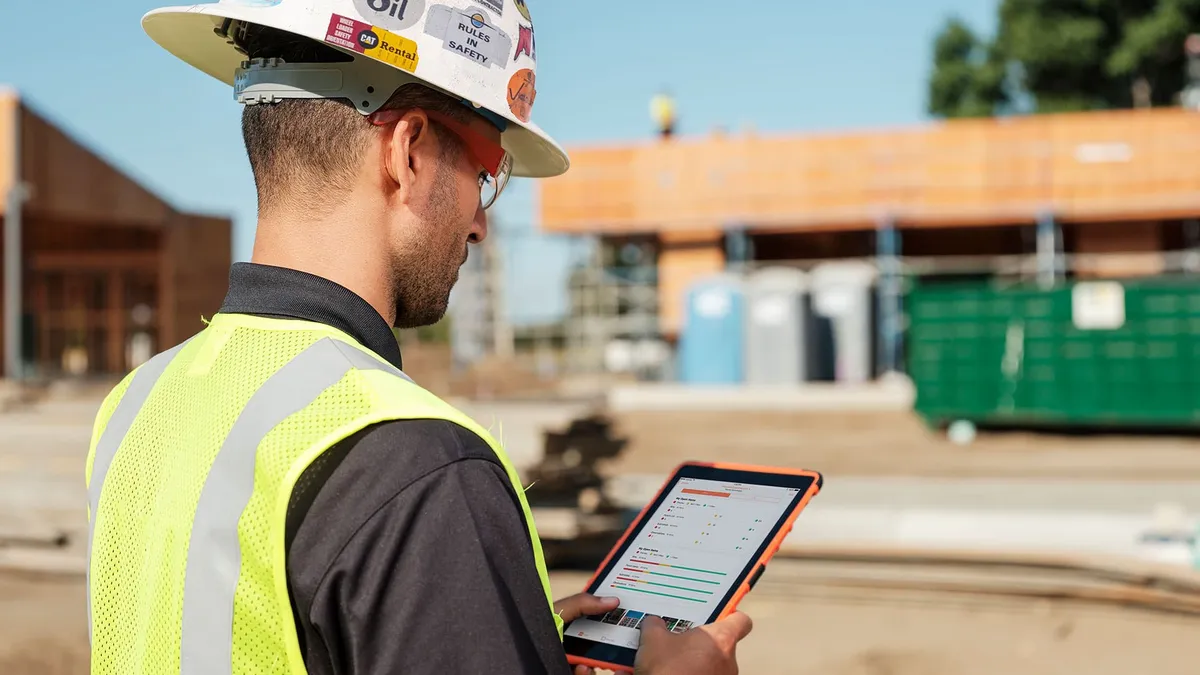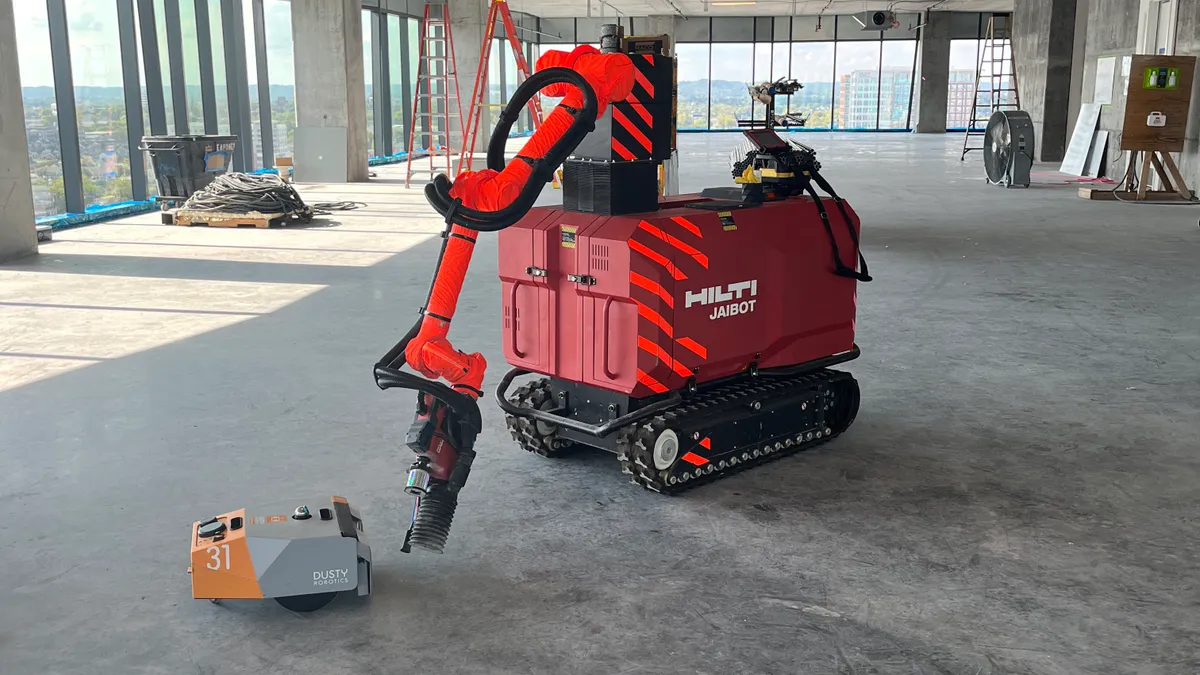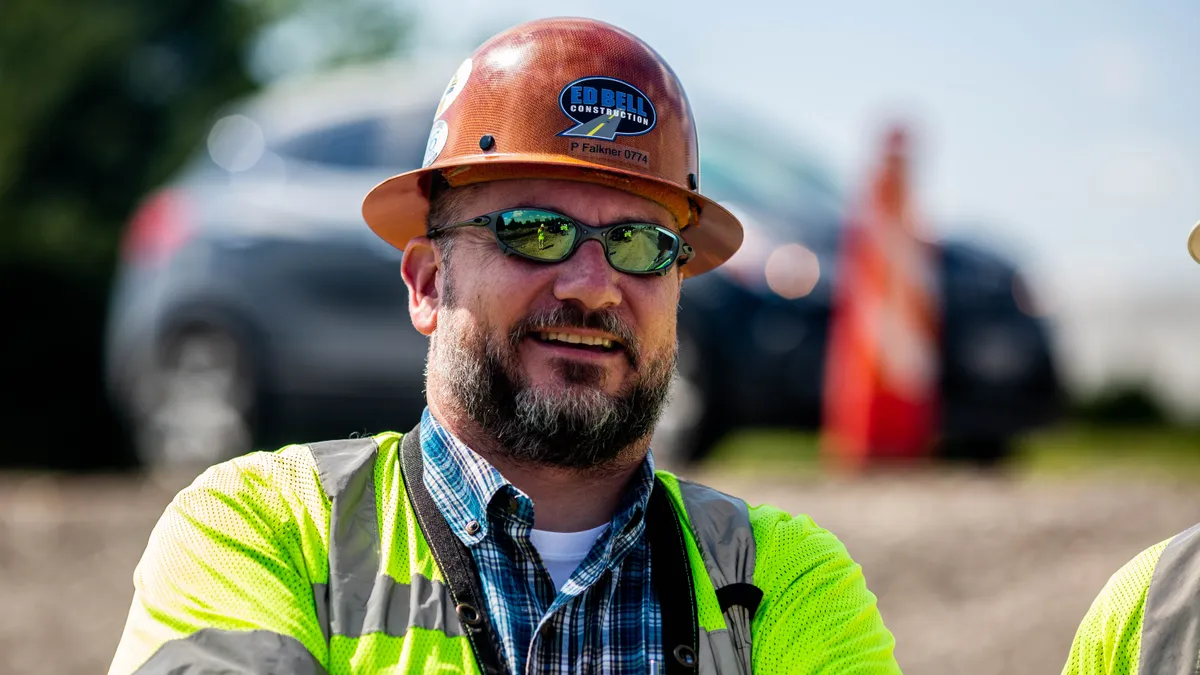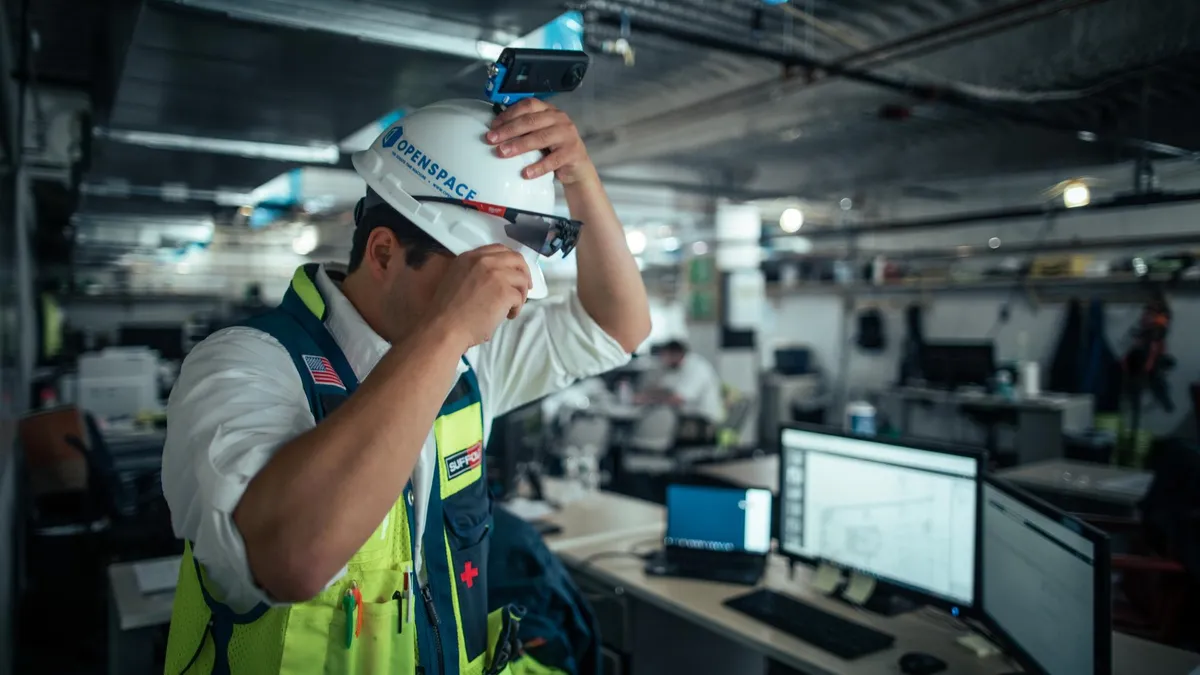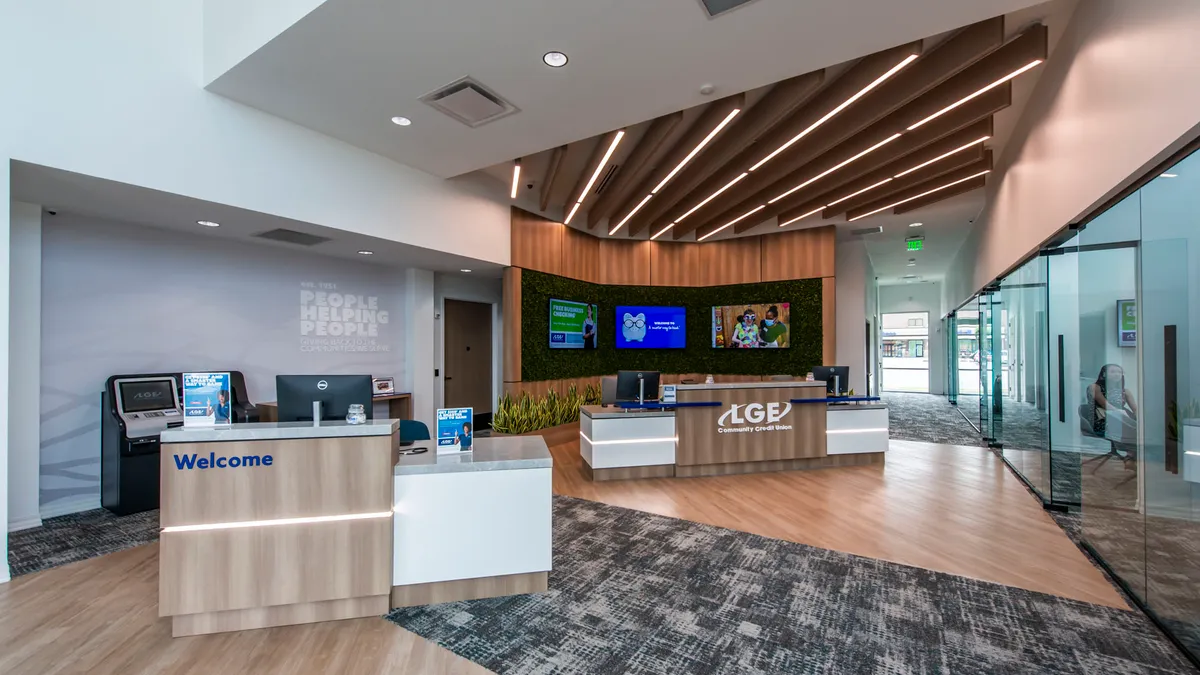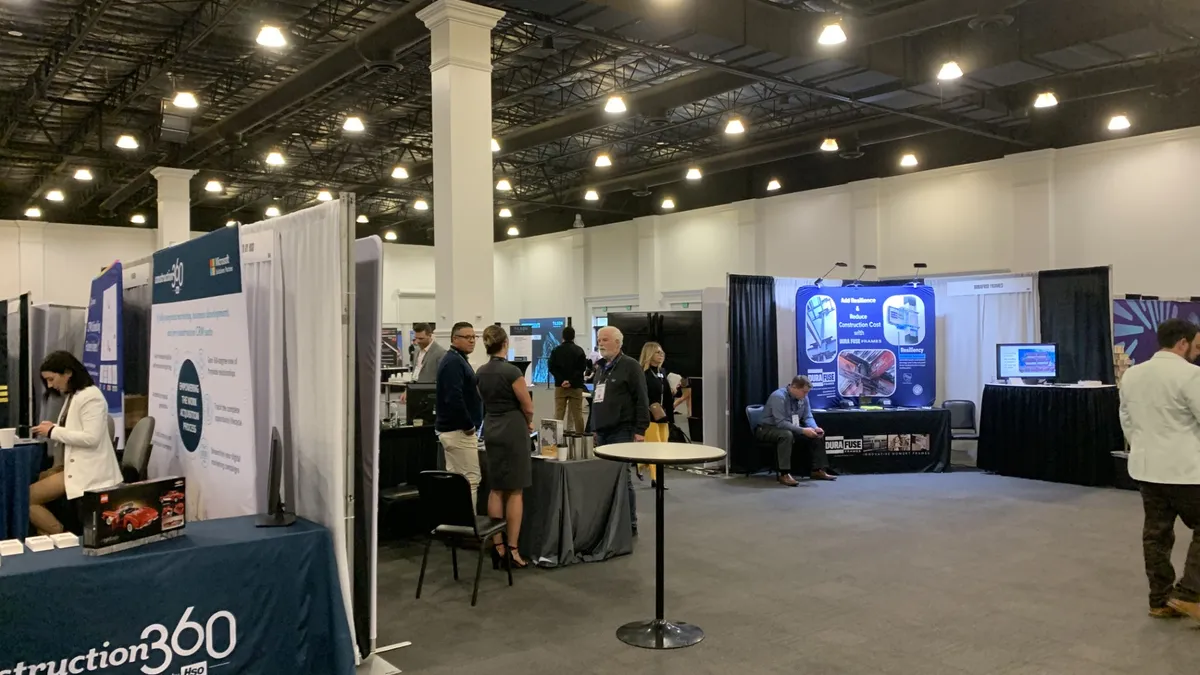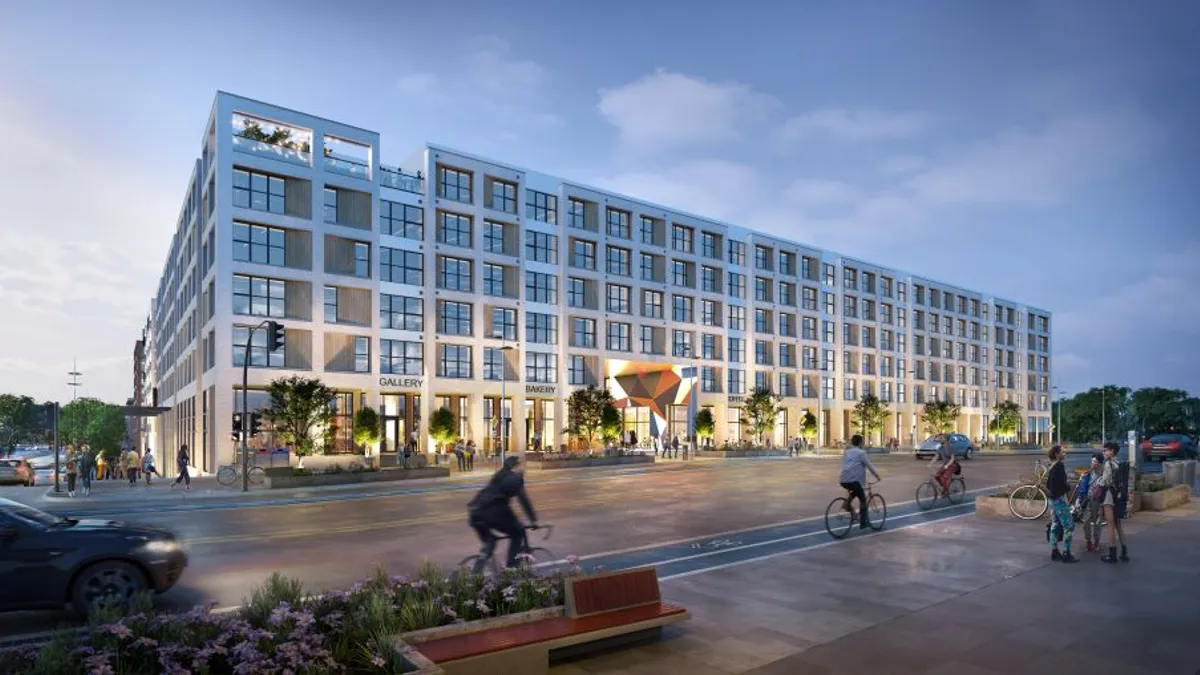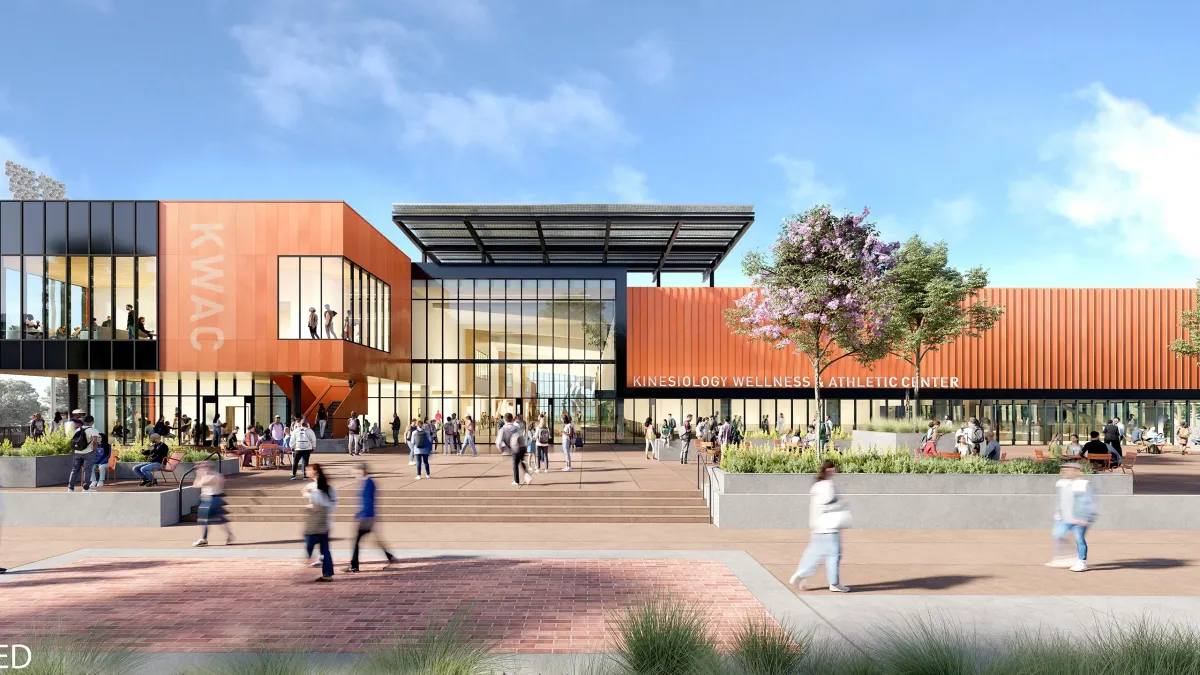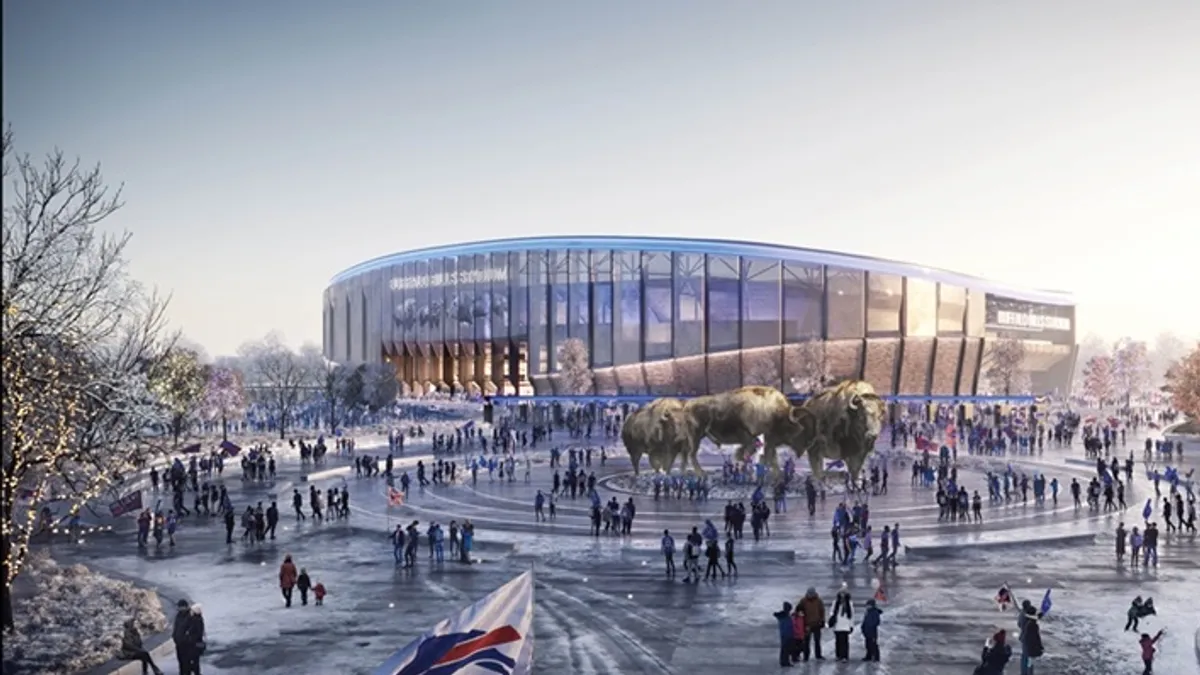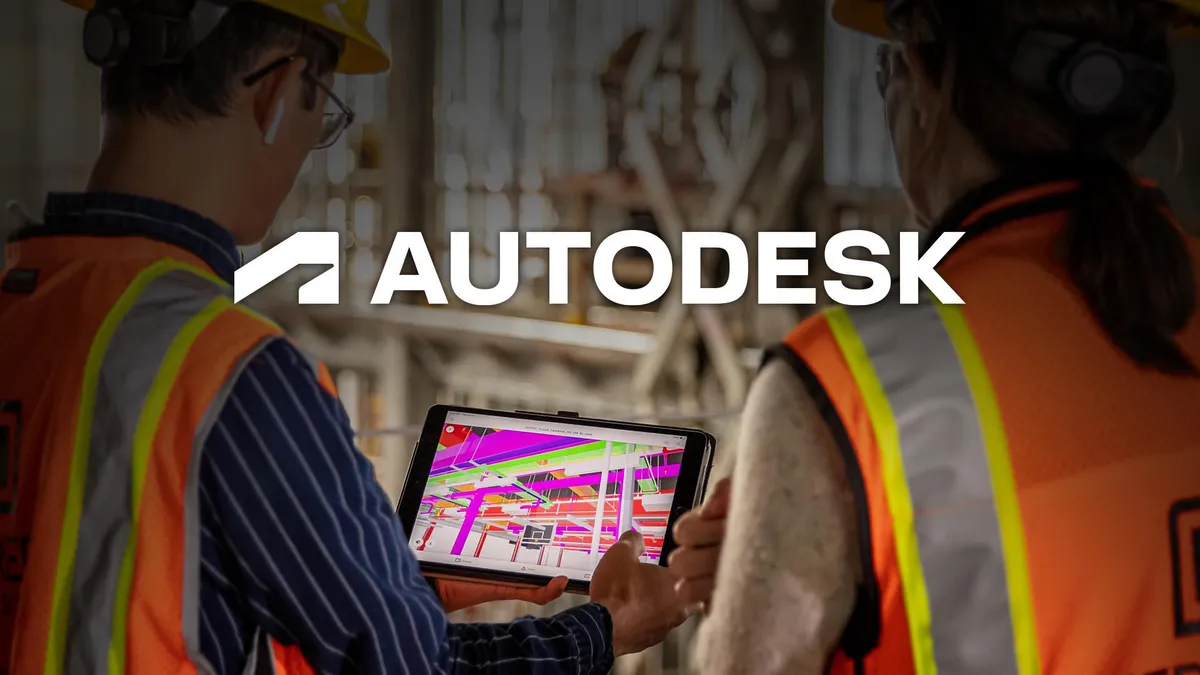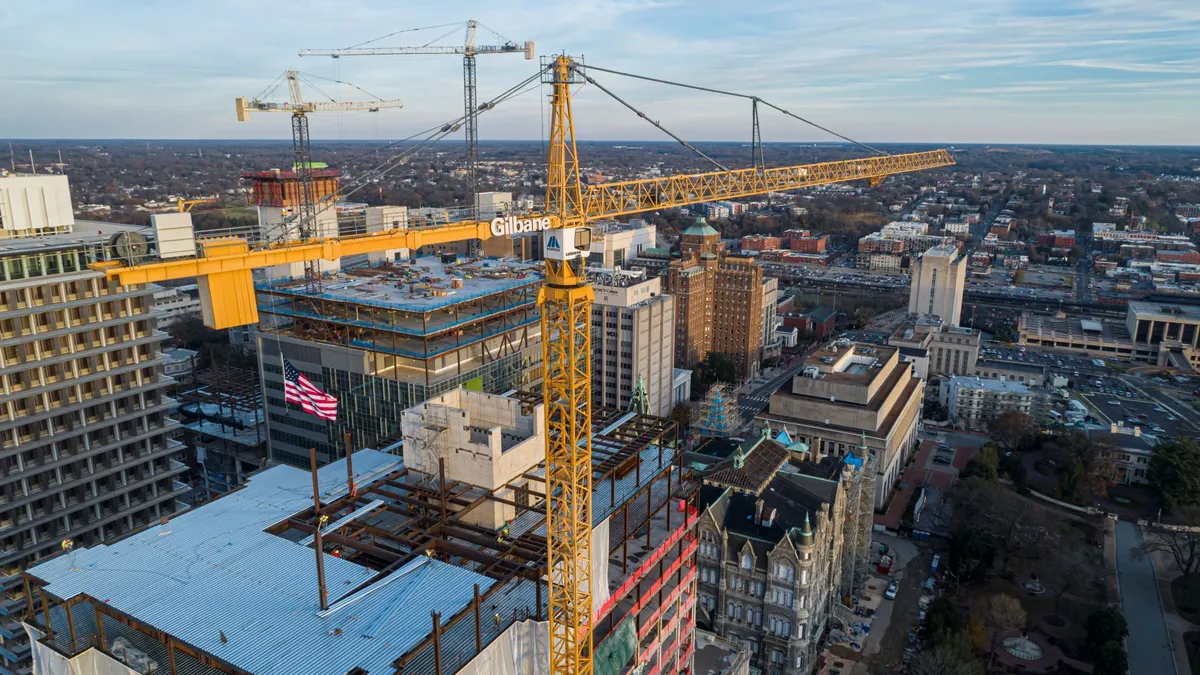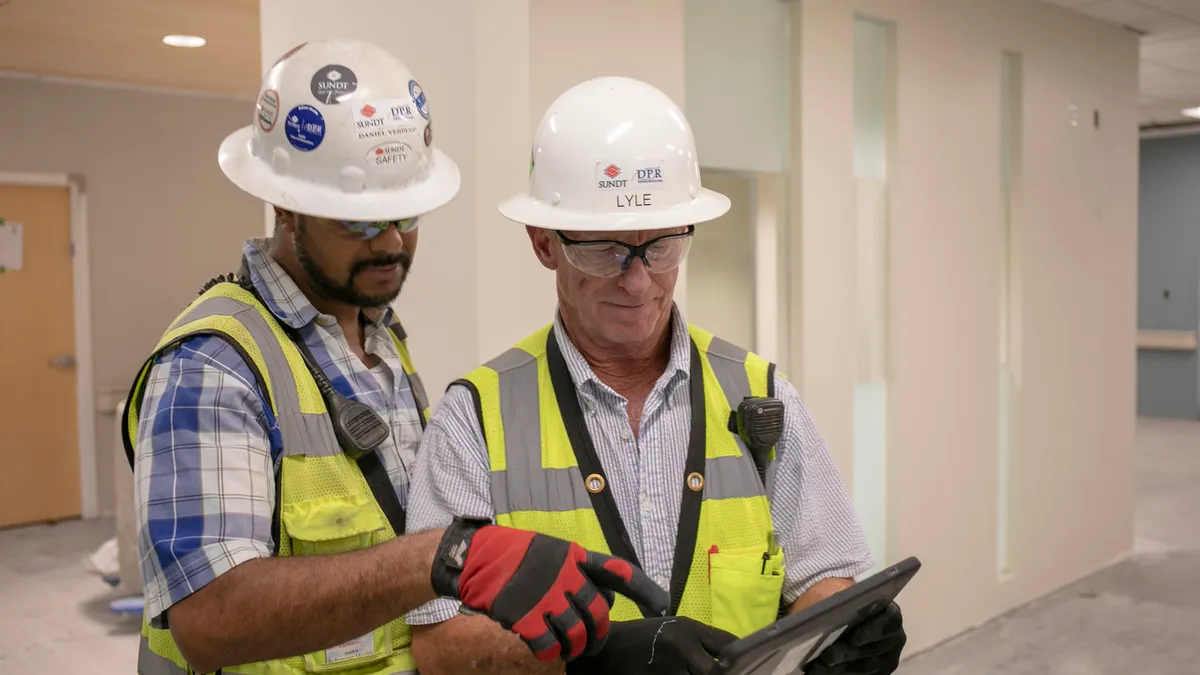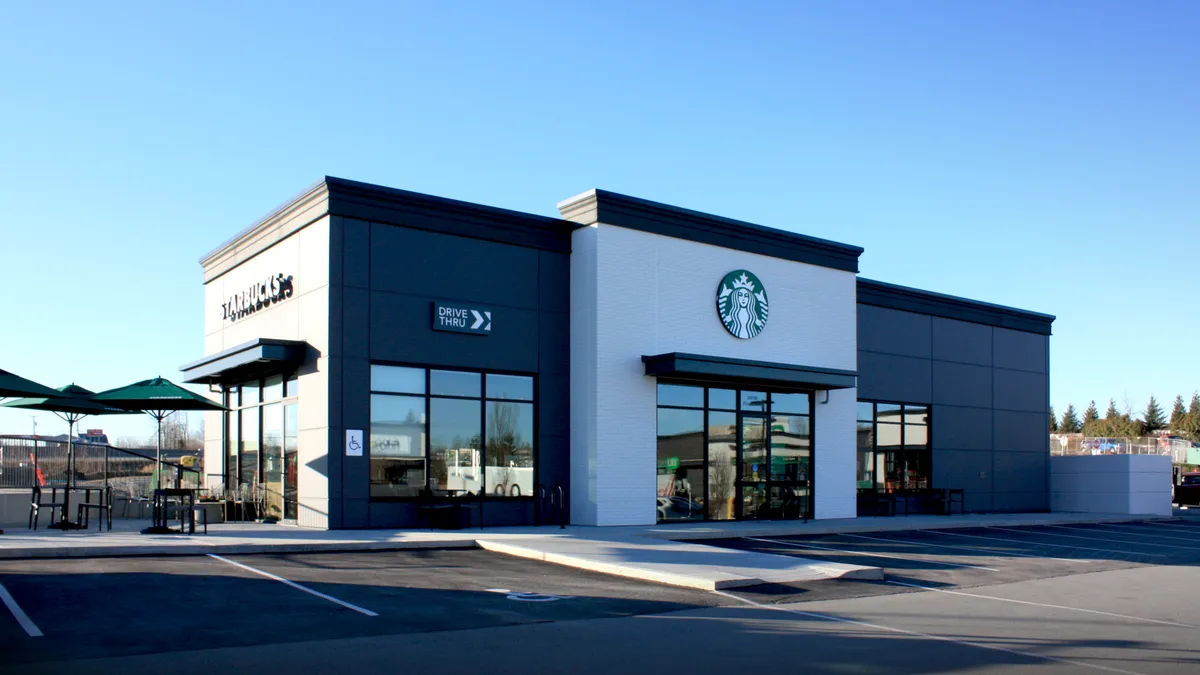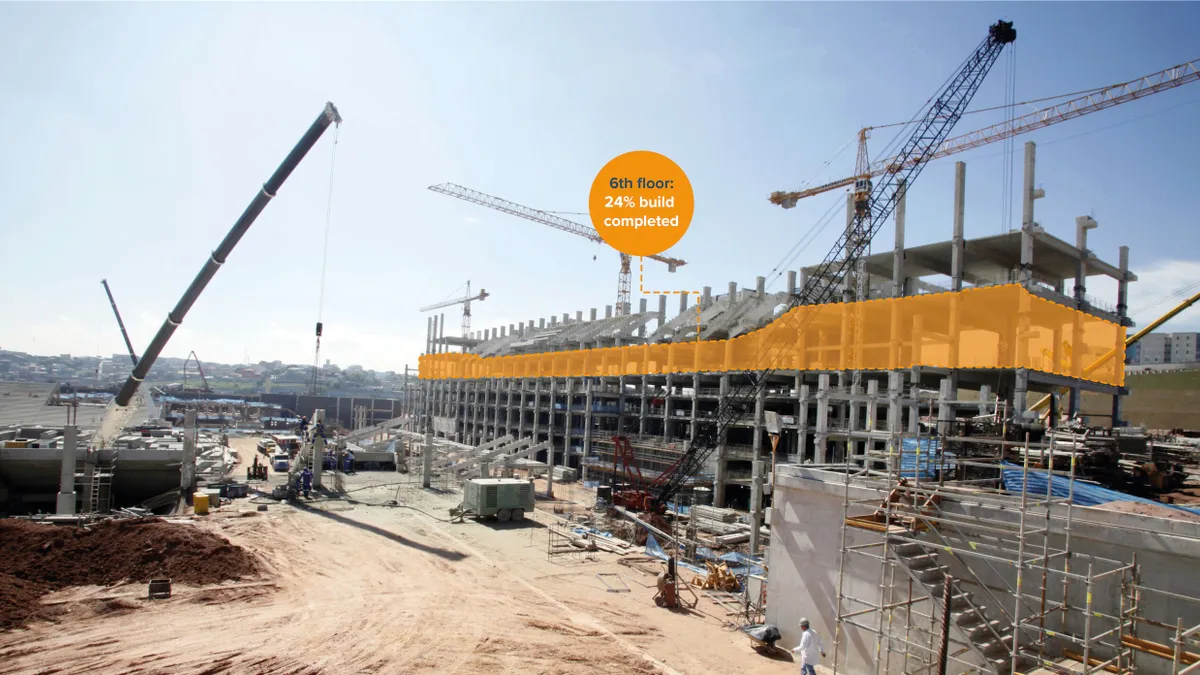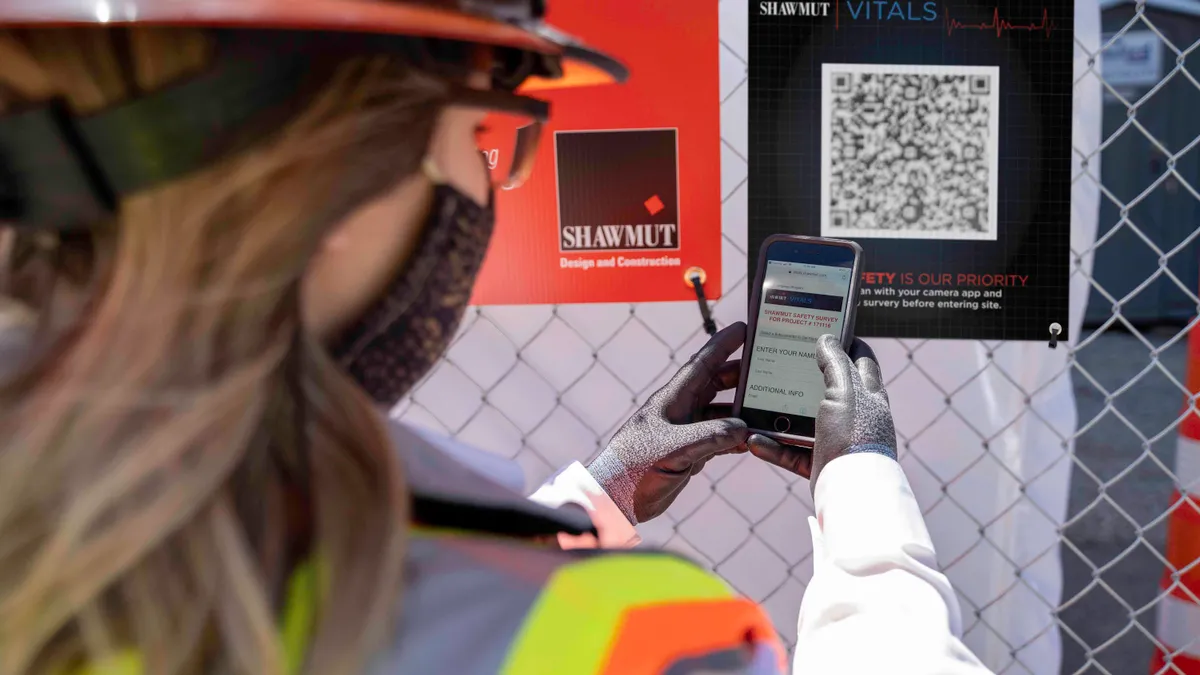ConTech Conversations presents a discussion with a leader in the construction technology field each month. Click here for past discussions.
Construction technology is at an inflection point, and Carpinteria, California-based construction software firm Procore is looking to capitalize on it. The company detailed its plans for the future in an earnings call three weeks ago, and CEO Tooey Courtemanche gave a peek into the different industries, like fintech, that it wants to enter.
This is where Steve Davis, the company’s new president of product and technology, comes in.
Working from Austin, Texas, Davis will be responsible for developing the strategy and execution of Procore’s product offerings, according to a company release. He comes with a plethora of tech experience from his time at companies like VRBO and Expedia Group, and Davis has some ideas about how to wield that experience in the construction industry.
Here, Davis discusses his new role, lessons from other industries and how he sees construction advancing with new technology.
Editor’s note: This interview has been edited for brevity and clarity.
CONSTRUCTION DIVE: You don’t come from a construction background. How did you wind up at Procore?
STEVE DAVIS: When I look back at my career, there's kind of a common thread. There were companies that were in the hyper-growth phase that were entrepreneurs, trying to disrupt a specific industry with massive opportunity, and they were global. When I look back at the past 15 years — especially my experience at HomeAway, VRBO, Expedia Group — really, the focus and the passion has been on companies that operate multi-sided marketplaces.
So, when Procore came along, I knew the company, because they have a huge presence in Austin, is very well respected. And the more I dug into the company, the more I saw the tremendous opportunity in both building amazing software and the marketplace opportunity, as the platform of that connected strategy starts to evolve.
Construction is different from healthcare and travel. What do you anticipate you’ll need to learn about as you get started?
Obviously, there's the terminology. You know, in each industry, that terminology is different. You can imagine what it was like to sell SaaS and cloud platform tools to some of the largest companies in the world at a time where SaaS or the cloud platform really didn't exist. These were new industries for me, but really the technology and the reference patterns were all the same.
Under the hood at many of these companies, the platform technology — especially the connected strategy, such as how you build financial systems, how you build platforms that can scale multi-tenant, many customers — those reference patterns apply to pretty much any industry when you look under the hood.
What's different about construction is the common language that the industry uses. That's what I'm picking up on pretty quickly. My passion has been to build. I probably tore apart more things than I actually built, but I clearly have a passion for building whether it's building houses, building cars or building companies. The same thing applies. I'm super excited to learn the common language of the construction industry.
What are the biggest challenges plaguing the construction industry right now?
The construction industry is just now hitting that curve where the acceleration [of technology] is starting to take off. When you look at the solutions you're trying to replace in many cases, you're replacing pen and paper, as I've heard from many of the employees at Procore and the leadership team and from feedback I've received, or you're trying to replace legacy systems. I think as the industry goes through this transformation, there are so many areas that start to light up as opportunities and challenges because there's a completely different way of doing things with technology.
If you just look back to the travel industry 15 years ago, it was next to impossible to book a flight, book a car, get a hotel, get a ride to the hotel, get a ride from the airport, all in a super efficient form. Now, we take it for granted how seamless that is and how a common language has developed across all those activities, both in the back end and in how the systems are managed, and from how the consumer or the customer actually uses them.
I think the construction industry is going to go through that exact same curve. I think we'll see a common language or common interface start to appear across the industry for how we do things and then the back-end systems. If you're building a company at scale, a company that's being competitive and efficient is going to have to check those boxes on having those systems operating at scale in a common way. I think the next generation of employees are used to that friction-free access, they’ll expect that when they walk in the door.
What bottlenecks are in the construction industry right now that delay progress?
The inefficiencies on the financial transaction side are extremely complicated and challenging for each of these companies and for the consumers. Our foray into fintech and investment into those platforms allows us to start to connect the financial systems and the payment system.
How do we make that super efficient, and give our customers a competitive advantage, and allow those partners to plug into that system and actually benefit from the broader ecosystem? I clearly see that as a huge opportunity for us, and one that I'm definitely going to be spending time on over the next couple of months.



